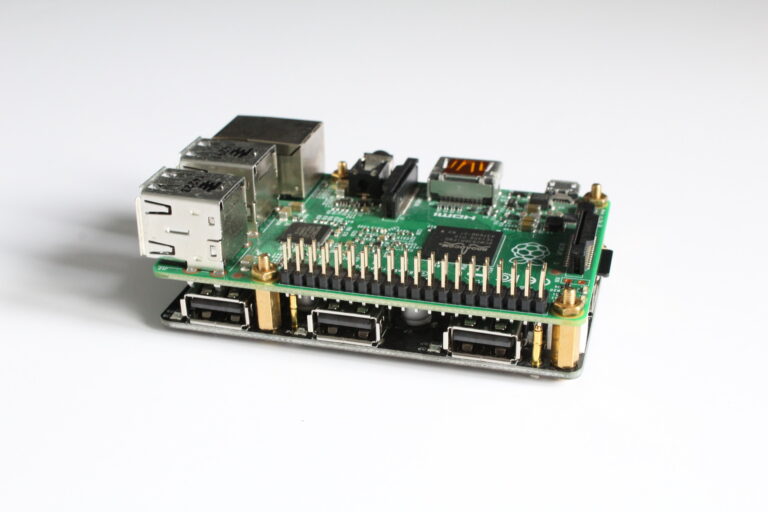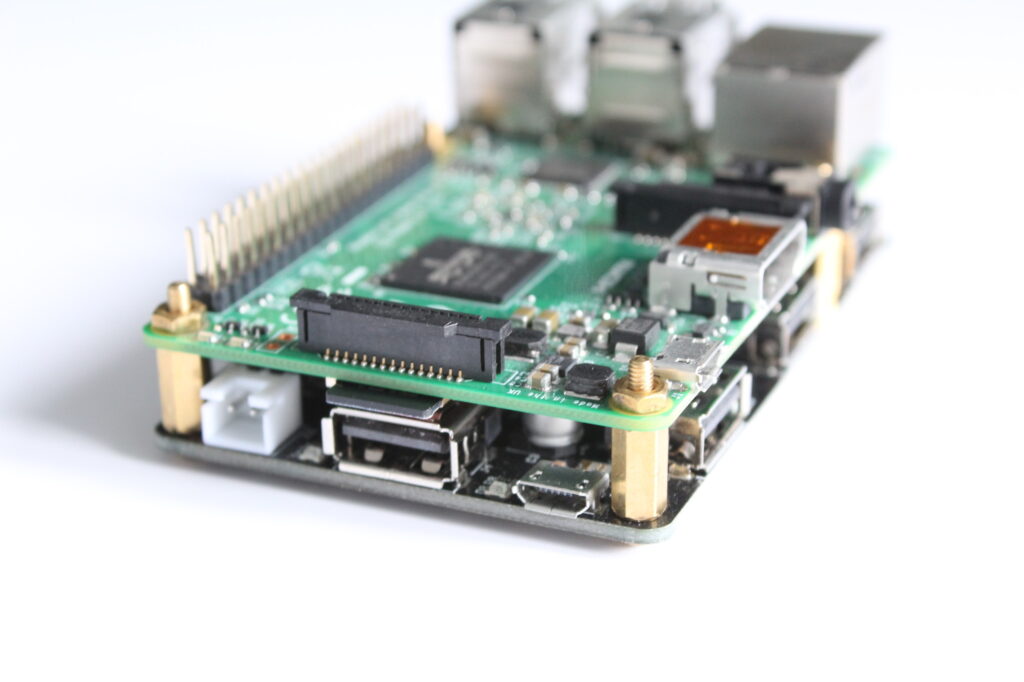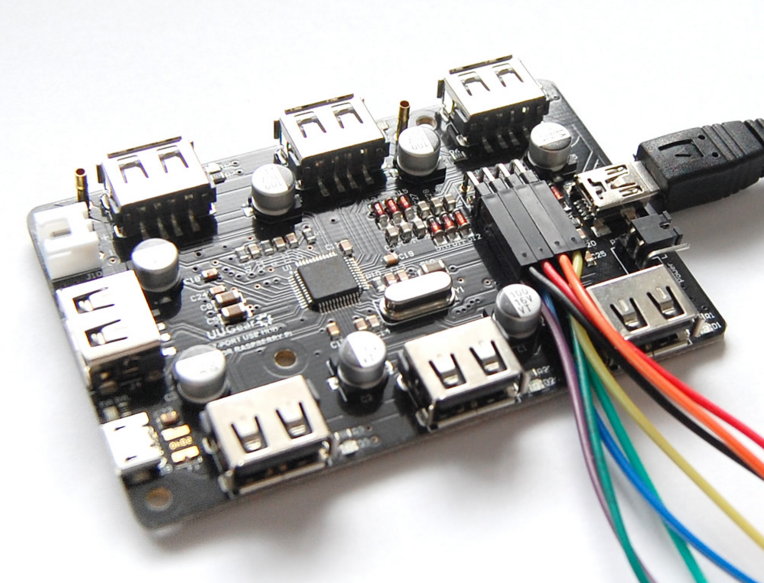UUGear have just released a new 7-port USB hub add-on board for the Raspberry Pi. It is an updated version of the device they released in 2014. It has the same footprint as the Pi and can be attached to all Raspberry Pi versions which currently includes Models A, B, A+, B+, 2B, 3B and Zero. Unlike most other Pi add-ons boards this product is designed to be mounted underneath the Pi which keeps the top surface free for messing about with GPIO pins and the camera interface.
Package Contents
- 1x 7-port USB hub board
- 1x USB to mini USB cable
- 2x Crown head pogo pins
- 4x M2.5 x 10 + 6mm Copper Standoffs
- 4x M2.5 screws
- 4x M2.5 nuts
Specifications
- Dimension: 85mm x 56mm x 10mm
- Weight: 29g (net weight without any accessory)
- Power Mode: Bus-Power / Self-Power
- Standards: USB 2.0 and 1.1 compatibility, Multiple Transaction Translator (MTT)
- Working Voltage: 5V DC
- Static Current: 4mA
- Maximum Output Current: 2A for all ports in self-power mode, 500mA for all ports in bus-power mode
- Operating Temperature: 0°C~70°C
- Storage Temperature: -20°C~60°C
- Humidity: 0~80%RH, no condensing
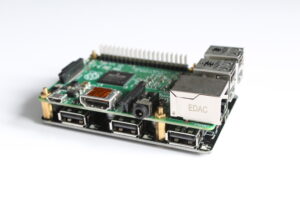 The board mounts nicely under the Pi using the supplied brass pillars. The pogo pins make contact with the underside of the Pi and are a neat solution to providing power to the Pi. The miniUSB to USB cable connects the board to a USB port on the Pi. The use of a miniUSB port ensures you don’t get confused with the microUSB port which is for 5V power only.
The board mounts nicely under the Pi using the supplied brass pillars. The pogo pins make contact with the underside of the Pi and are a neat solution to providing power to the Pi. The miniUSB to USB cable connects the board to a USB port on the Pi. The use of a miniUSB port ensures you don’t get confused with the microUSB port which is for 5V power only.
One of the best features is the back powering. This allows you to provide power to the hub from a single power supply and the hub then powers the Pi. I much prefer using a single supply and this keeps the setup nice and neat. If you are planning on plugging in 7 USB devices the last thing you need is another power supply wire getting in the way.
When I tested mine I used the 5V/2A supply that came with my HDMIPi screen. The supplied spring loaded “pogo pins” connect 5V and ground to the rear of the GPIO header for a really neat solution.
Unlike some USB hubs out there the UUGear device features MTT (Multiple Transaction Translators) which allows each port to run at full speed. Obviously the total throughput is limited by the connection to the Pi but it prevents a USB 2.0 device being hampered by the use of a single USB 1.0 device on the same hub.
Another innovative feature is the 7 pin header on the top of the board. These 7 digital output pins allow you to monitor which USB ports are in use. They use 3.3V logic levels so can be connected directly to the Pi’s GPIO pins if required.
Potential Applications
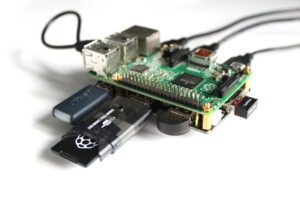 Obviously if you only need to connect a keyboard and mouse you might not see the point of 7 USB ports. However for more elaborate projects the standard 4 ports might not be enough. For example 7 ports would allow you to create a security project with 2 webcams, WiFi dongle, Bluetooth dongle, USB flash drive, mouse and a keyboard.
Obviously if you only need to connect a keyboard and mouse you might not see the point of 7 USB ports. However for more elaborate projects the standard 4 ports might not be enough. For example 7 ports would allow you to create a security project with 2 webcams, WiFi dongle, Bluetooth dongle, USB flash drive, mouse and a keyboard.
I’m not sure but I also wonder if you could attach 7 SD card readers and re-image 7 SD cards at the same time?
With the recent release of the Pi 3 you save two ports by having onboard WiFi and Bluetooth but I can still see some projects where additional USB ports would be required.
Documentation
As I’ve said before so many add-ons are let down with poor documentation. The UUGear hub isn’t one of these and the user manual is very clear and well presented. It covers the various configurations you might use and doesn’t assume everyone is using a Pi 2.
You can order a hub from the UUGear Product Page.
If you haven’t already take a look at the Witty Pi which is another high quality UUGear board for the Raspberry Pi that allows scheduled power on/off.

